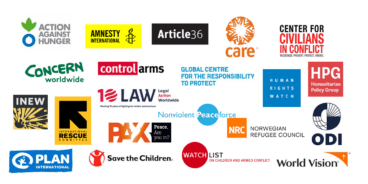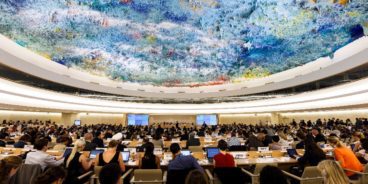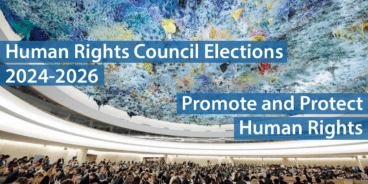
Joint NGO Letter: Member States of the UN should refrain from voting for candidates to the Human Rights Council that are unfit for membership
To Permanent Representatives of the Member States of the UN General Assembly
Excellencies,
Ahead of the next United Nations Human Rights Council (“HRC” or “the Council”) election, we, the undersigned national, regional and international civil society organisations, write to urge your delegation to refrain from voting for candidates that manifestly fail to fulfil the Council membership standards set forth in the UN General Assembly (UNGA) resolution 60/251.
Resolution 60/251 establishes that members of the Council should uphold the highest standards in the promotion and protection of human rights and fully cooperate with the Council and its mechanisms. It further determines that, when voting, Member States should take into consideration the candidates’ contributions to the promotion and protection of human rights, as well as their voluntary pledges and commitments.
In October 2019, the next HRC election will determine which States sit as Members of the Council in the next three years (2020-2022). Civil society organisations are concerned that several of the States that are running for election fail to fulfil minimal requirements concerning both the promotion and protection of human rights and cooperation with the Council and other UN human rights bodies and mechanisms.
Some of these candidates demonstrate a consistent pattern of non-cooperation with the UN human rights system, as well as concerning disregard for fundamental rights, which is incompatible with Council membership. Furthermore, some of this year’s candidates have engaged in acts of intimidation and reprisals against human rights defenders and civil society organisations, who play a vital role in the Council’s work. We are also concerned that candidates have performed attacks against the UN human rights system itself and that their voluntary pledges fail to reflect the realities on the ground.
Voting for these candidates would gravely undermine the Council’s credibility and institutional integrity.
Civil society organisations have long criticised non-competitive slates for the Council. Even in those cases, though, considering that States must receive a simple majority of votes (i.e., 97) to be elected, that voting takes place by secret ballot, and that electing States are under no obligation to vote for each and every candidate within a regional group, delegations could simply refrain from voting for unfit candidates.
We urge you to treat human rights considerations and the substantive Council membership criteria outlined in resolution 60/251 as paramount in electing members to the Council by leaving the ballot blank for those candidate States your delegation considers unfit, rather than engaging in vote trading or privileging political considerations over fundamental human rights. We also urge States to keep Council elections competitive by presenting and supporting eligible candidacies and avoiding clean slates in every election of the Human Rights Council.
Sincerely,
- African Centre for Democracy and Human Rights Studies (ACDHRS)
- Asian Forum for Human Rights and Development (FORUM-ASIA)
- Asian Legal Resource Centre (ALRC)
- Cairo Institute for Human Rights Studies
- Centro de Estudios Legales y Sociales (CELS)
- CIVICUS: World Alliance for Citizen Participation
- Commonwealth Human Rights Initiative (CHRI)
- Conectas Direitos Humanos
- DefendDefenders (East and Horn of Africa Human Rights Defenders Project)
- Egyptian Initiative for Personal Rights (EIPR)
- FIDH (International Federation for Human Rights)
- Global Centre for the Responsibility to Protect
- Human Rights House Foundation
- Humanists International
- International Service for Human Rights (ISHR)
- West African Human Rights Defenders Network (WAHRDN/ ROADDH)
Related Content


Joint recommendations for the Universal Periodic Review of Yemen
